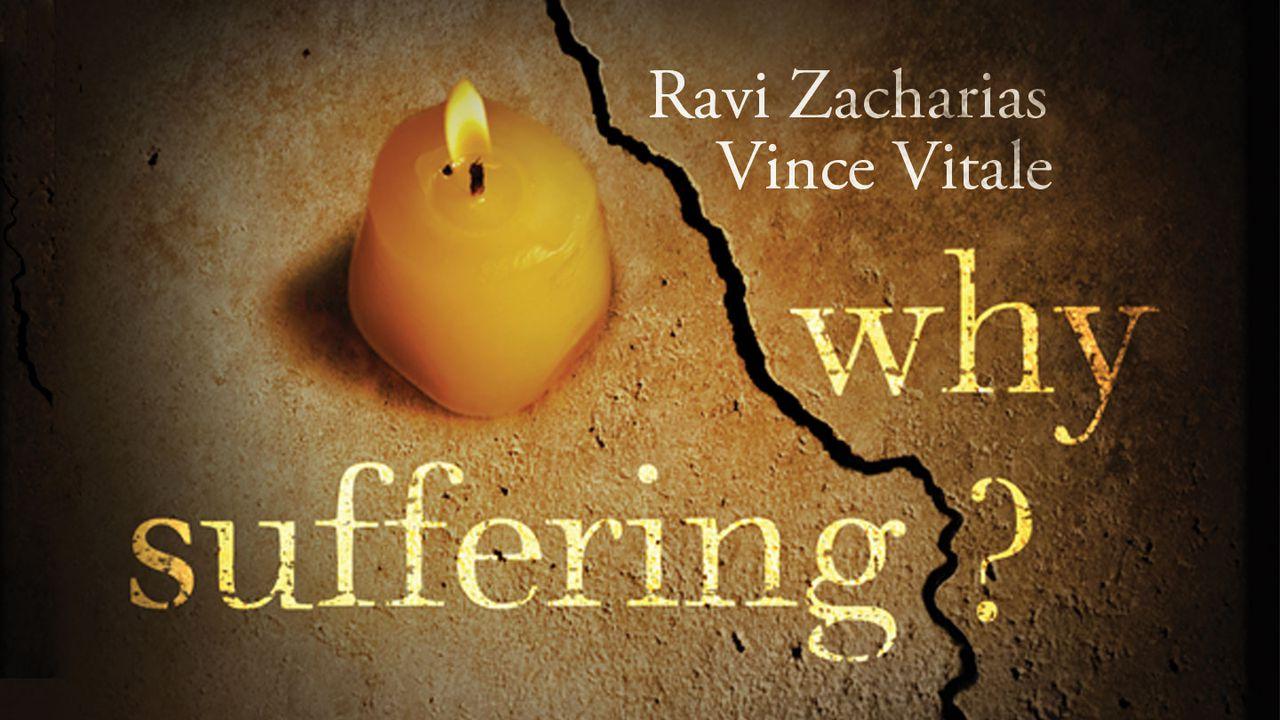Why SufferingSample

Buddhism and Suffering
The question of pain is an enormous one. It’s easy to give answers when it’s someone else’s pain and very difficult to philosophize when the pain is your own. C. S. Lewis wrote a philosophically insightful work on pain entitled The Problem of Pain. Yet, when he lost his wife, his book A Grief Observed moved the struggle from the third person to the first.
Suffering is real. But just in case we forget, there are some religions that actually try to dispense with suffering as illusory or as a scenario being staged for the benefit of an audience while behind the curtain all is well. In fact, if suffering were not real, most of the religions in the world wouldn’t even exist. In this devotional and the two that follow it, we will look at how three different worldviews—Buddhism, Islam, and naturalism—approach the question of suffering.
Gautama Buddha, the founder of Buddhism, observed sickness, old age, death, and an ascetic sage. He found his answer to suffering in the life of renunciation and the elimination of desire. He pursued his quest for the answers to suffering and pain with total abandon by rejecting the world and reflecting, meditating, and pondering the why of it all.
The word that Buddha used is dukkha, which has its roots in ancient Sanskrit. Sukh means comfort and well-being; dukh means anguish and sorrow and pain. Buddha reached a climactic conclusion that the source of the problem lay in “desire.”
So the cure is simple but lifelong: If you don’t desire anything, you won’t be hurt when something is taken from you. Kill desire and attachment and you kill pain and suffering. The goal is to stop wanting anything. The entire corpus of material in Buddhism is summarized in four subheadings:
- The fact of suffering
- The cause of suffering
- The cessation of suffering
- The path to that cessation
Simply stated, suffering results from past actions and from the reality of desire. We desire things, we desire circumstances, we desire success, we desire wealth, we desire happiness. All these desires make us pursue habits and make decisions that we think will help us to get “there,” but also make us vulnerable to pain and suffering.
And in the end, in this life we never get “there.” Instead we find ourselves in a state in which our desire only grows. We need to find a “there” where we will no longer desire anything—the state of nirvana, where we don’t will or want anything because the will has been extinguished.
The conclusion this produces, apart from the obvious contradiction, is that detachment is the key to happiness. But even there, it’s not so much happiness as it is a sublime form of apathy.
It doesn’t seem accidental that the night Buddha left his palace to pursue an answer to pain and suffering was the very night that his wife was giving birth to their son. In his quest to eliminate suffering, Buddha actually walked out and left his wife alone in the throes of her pain. Contrast this with the God of the Bible who came into this world Himself in the person of His Son to suffer on the cross, to embrace pain and suffering for the sake of humanity. Buddha walked away from his son and from pain. In Christianity, God is part and parcel of the solution. In non-theism or atheism, God has nothing to do with either the problem or the solution.
In Buddhism there is, in the end, the loss of individual value and the stifling of the deepest longing of the human heart for love. The definitions of human value and of love are either lost or obscured or trivialized.
Without purpose, suffering is unexplainable. Without love, the meaning of life is unknowable. Buddhism struggles to explain the tiny little purposes we all struggle with because it has no ultimate coherent purpose to offer. The most important elements that complete the story are missing. In contrast, the Christian answer not only meets the test of logic and corresponds to heartfelt reality, but also meaningfully justifies the question of suffering in the process.
Reflection Questions
- What do you make of the contrast between Buddha and Christ? Based on their different responses to the pain and suffering of others, which figure is more attractive?
- If the key to nirvana is extinguishment of the will, how might Buddhism end up promoting a loss of personal worth and meaning?
Bible Verses
- Hebrews 9:27
- Romans 5:1–5
- Hebrews 5:7–10
Scripture
About this Plan

This study is based on the book WHY SUFFERING? written by Christian apologist Ravi Zacharias and Vince Vitale, Dean of the Zacharias Institute, It is written for the Christian struggling for an answer, the seeker who thinks suffering disproves God’s existence, and the sufferer who needs a glimpse of a loving God.
More
We would like to thank RZIM for providing this plan. For more information, please visit: https://rzim.org
Related Plans

A King Washes Feet

The Hands of a Woman 🌸

He Is Risen! A Gospel View of the Resurrection

The Desert Road: Trusting God When the Plan Is Unclear

From Wilderness to Resurrection - Lent With Hope 103.2

Moments of Joy

The Miracles of Jesus

Creative Warriors for the Kingdom

On the Other Side of the Divide
